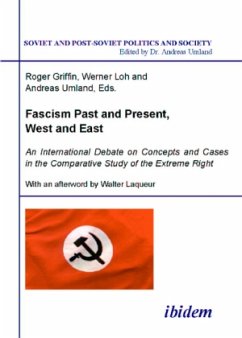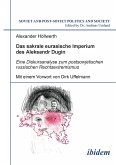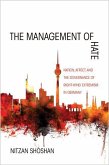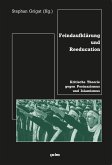In the opinion of some historians the era of fascism ended with the deaths of Mussolini and Hitler. Yet the debate about its nature as a historical phenomenon and its value as a term of historical analysis continues to rage with ever greater intensity, each major attempt toresolve it producing different patterns of support, dissent, and even hostility, from academic colleagues. Nevertheless, a number of developments since 1945 not only complicate the methodological and definitional issues even further, but make it ever more desirable that politicians, journalists, lawyers, and the general public can turn to experts for a heuristically useful and broadly consensual definition of the term. These developments include: the emergence of a highly prolific European New Right, the rise of radical right populist parties, the flourishing of ultra-nationalist movements in the former Soviet empire, the radicalization of some currents of Islam and Hinduism into potent political forces, and the upsurge of religious terrorism. Most monographs and articles attempting to establish what is meant by fascism are written from a unilateral authoritative perspective, and the intense academic controversy the term provokes has to be gleaned from reviews and conference discussions. The uniqueness of this book is that it provides exceptional insights into the cut-and-thrust of the controversy as it unfolds on numerous fronts simultaneously, clarifying salient points of difference and moving towards some degree of consensus. Twenty-nine established academics, mostly German but including several prominent experts working in English, were invited by the periodical Erwägen Wissen Ethik (Deliberation Knowledge Ethics) to engage with an article by Roger Griffin, one of the most influential theorists in the study of generic fascism in the Anglophone world. The resulting debate progressed through two rounds of critique and reply, forming a fascinating patchwork of consensus and sometimes heated disagreement. In a spin-off from the original discussion of Griffin s concept of fascism, a second exchange documented here focuses on the issue of fascist ideology in contemporary Russia. This collection is essential reading for all those who realize the needto provide the term fascism with theoretical rigour, analytical precision, and empirical content despite the complex issues it raises, and for any specialist who wants to participate in fascist studies within an international forum of expertise. The book will change the way in which historians and political scientists think about fascism, and make the debate about the threat it poses to infant democracies like Russia more incisive not just for academics, but for politicians, journalists, and the wider public.
Bitte wählen Sie Ihr Anliegen aus.
Rechnungen
Retourenschein anfordern
Bestellstatus
Storno








